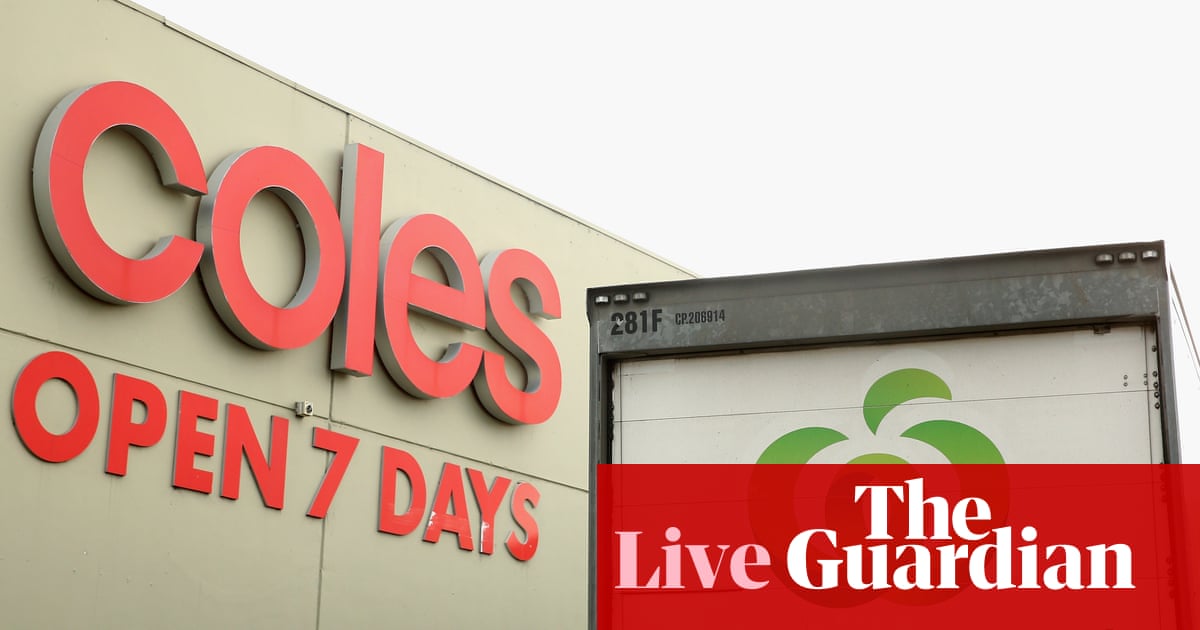Federal government to target ‘shrinkflation’ at supermarkets
Sarah Basford Canales
The Albanese government is looking at cracking down on “dodgy discounts” by supermarkets who reduce product sizes but maintain or increase prices as part of its campaign against misleading and deceptive pricing in the sector.
The government will consult on changes to strengthen the Australian Competition and Consumer Commission’s Price Unit Code, which requires larger supermarkets and grocers to provide cost per unit breakdowns on price tags within stores and online.
The code means, for example, price tags for laundry detergents are broken down by cost per litre to allow consumers to compare products. Fresh produce price tags must also show price per kilogram or grams.
The government announced it would consult on the following changes:
-
Improving readability and visibility of unit pricing in stores,
-
Addressing inconsistent use of units of measure across supermarkets,
-
Whether to expand the scope of retailers covered by the code,
-
More specific prominence and legibility requirements, and
-
Improving the use of unit pricing in cross-retailer price comparisons.
The ACCC will also be funded to launch a consumer awareness campaign on how unit pricing can help Australians get better deals.
The prime minister, Anthony Albanese said “tackling ‘shrinkflation’ through stronger unit pricing and new penalties is part of our plan to get a better deal for Australians”.
We are also making changes to make sure the ACCC is a tough cop on the beat, while also encouraging more competition and making sure there are significant consequences for supermarkets who do the wrong thing.
Key events
Nasser Mashni, president of the Australian Palestine Advocacy Network, spoke with ABC News Breakfast earlier and was asked about comments from the prime minister yesterday, that 7 October was “not a time for demonstrations to occur.”
This comes as a pro-Palestine protest is planned for 6 October, and a vigil planned for 7 October – however the NSW police have applied to the state’s supreme court to attempt to prevent these from going ahead. You can read more details on this below:
Mashni said he doesn’t accept a rally would be “provocative” and said:
We have [been protesting for] 51 weeks in a row, [and it’s been] absolutely peaceful. Millions of Australians have come out, it’s not provocative at all.
What’s provocative is the fact that our government isn’t listening to tens of thousands, hundreds of thousands, millions of Australians, who have signed petitions, called their MPs, have done everything they’re supposed to do within this democratic framework to say ‘enough’ …
If my neighbour was beating his dog I can’t keep saying [something]. At some point I’m compelled to jump the fence and grab his hand.
Asked about the supreme court decision, Mashni said he has “faith in our judicial system”.
547 Victorians died from overdose in 2023
A new report from the Victorian coroners court shows that 547 Victorians died from overdose last year.
This is close to the record 550 overdose deaths recorded in 2022, which marked the highest annual number recorded in the past decade.
Some key findings included in the report include:
-
Men are on average twice as likely as women to die from overdose, and people aged between 35 and 54 are most at risk.
-
Metropolitan Melbourne accounts for approximately three-quarters of overdose deaths.
-
A majority (71.5%) of overdose deaths involved multiple drugs in 2023.
-
The five top contributing drugs to overdose deaths were diazepam (213 deaths), heroin (204 deaths), methamphetamine (164 deaths), alcohol (153 deaths) and pregabalin (78 deaths).
-
From 2014–23 the proportion of Victorian overdose deaths involving illegal drugs increased, from 41.3% in 2014 to 59% in 2023.
-
Most overdose deaths are unintentional. In 2023, 395 of the 547 overdose deaths were unintentional,114 were intentional and in 38 cases intent was unable to be determined based on the evidence available at the time of coding.
The Victorian State Coroner, Judge John Cain, said the overdose deaths were “preventable” and that “we must strengthen our public health response and increase access to supports and treatment.”
Drug-related harms are complex and are driven by a variety of factors including changes in drug use, availability and regulation. That is why coronial data is so integral to understanding how best to target resources and save lives.
Advocacy group for older people concerned aged care homes not meeting direct care targets
Cota Australia, a leading advocacy group for older people, says it is concerned by new data showing 6 out of 10 aged care homes are falling short on their mandatory minutes of direct care and registered nurse targets.
Data from April to June, released today, shows many aged care homes are failing to meet their direct care targets. Chief executive Patricia Sparrow said increasing the mandatory minutes of care was a key recommendation of the royal commission into aged care, and a “substantial” piece of reform last year.
The fact that too many older people are still not getting the mandated minutes of care is a real concern … Basic direct care isn’t a ‘nice to have’, it’s crucial and the absolute minimum we should expect for older Australians in aged care.
Care minutes are the amount of direct care people in residential care receive from RN, enrolled nurses and nursing assistants. This month aged care providers are expected to increase their care minutes to an average of 215 minutes per resident, per day, including at least 44 minutes of care provided by a registered nurse.
Sparrow said it was especially concerning compliance rates in for-profit aged care homes are significantly lower than those run by not-for-profit providers – only 23% of ‘for profit’ providers met both their RN and total care minutes in the quarter.
High fire danger rating for Queensland today
In Queensland today, the fire danger rating is sitting at high in most parts of the state.
The high fire danger rating means there is a heightened risk of fire, with people urged to stay alert in their area. The fire department said:
If you had plans to grind, slash or mow today please reconsider … If work needs to happen today, be alert and make sure you have water on hand to extinguish any spot fires.
If you had plans to grind, slash or mow today please reconsider.
The Fire Danger Rating is sitting at HIGH in most parts of the state, which means there’s a heightened risk of fires.
If work needs to happen today, be alert and make sure you have water on hand to extinguish… pic.twitter.com/DeLelM8O8C
— Queensland Fire Department (@QldFireDept) October 2, 2024
Good morning

Emily Wind
And happy Thursday – many thanks to Martin for kicking things off for us. I’m Emily Wind, and I’ll be taking you through our rolling coverage for most of today.
If you have any thoughts, tips or feedback, you can reach out via X, @emilywindwrites, or send me an email: [email protected].
Let’s go.
Impromptu haka leaves Jahrome Hughes with a tear in his eye after Dally M
An emotional Jahrome Hughes has admitted he had a tear in his eye after Melbourne teammates launched into a haka to honour his Dally M Medal, AAP reports.
In scenes reminiscent of fellow New Zealander Roger Tuivasa-Sheck’s win in 2018, Melbourne winger Will Warbrick took over the Dally Ms to celebrate Hughes’ award.
After holding off James Tedesco by one vote and landing the first big individual honour of his career, Hughes watched as Warbrick launched into a haka alongside Storm second-rower Eliesa Katoa and Canberra prop Joseph Tapine.
“That meant a lot,” Hughes said.
To see that brought a tear to my eye. For them to do that is truly special. For myself, my culture and family, it just topped off an awesome night.
For more on the awards read our full report:
Miles and Crisafulli to participate in live TV debate for Queensland election
Queensland premier Steven Miles and opposition leader David Crisafulli will lock horns in an election debate as Queenslanders prepare to head to the polls, AAP reports.
The top-job hopefuls will go head-to-head on the Nine Network at 7.30pm (AEST) in Brisbane tonight before a second debate at the Queensland Media Club 10 days before the election.
Both leaders kicked off their campaigns in regional centres where key issues such as cost-of-living, health, housing and crime are pertinent.
Polls are pointing to a change of government on 26 October, with the Liberal National party leading 56% to 46% on a two-party preferred basis.
The premier and senior ministers announced on day two of the campaign that Labor would establish a state-wide publicly-owned energy retailer if re-elected.
The retailer would use existing infrastructure and be up and running within 12 months, the premier said.
Crisafulli pledged $30m towards an agriculture innovation fund to attract research opportunities to improve the sector.
Federal government to target ‘shrinkflation’ at supermarkets

Sarah Basford Canales
The Albanese government is looking at cracking down on “dodgy discounts” by supermarkets who reduce product sizes but maintain or increase prices as part of its campaign against misleading and deceptive pricing in the sector.
The government will consult on changes to strengthen the Australian Competition and Consumer Commission’s Price Unit Code, which requires larger supermarkets and grocers to provide cost per unit breakdowns on price tags within stores and online.
The code means, for example, price tags for laundry detergents are broken down by cost per litre to allow consumers to compare products. Fresh produce price tags must also show price per kilogram or grams.
The government announced it would consult on the following changes:
-
Improving readability and visibility of unit pricing in stores,
-
Addressing inconsistent use of units of measure across supermarkets,
-
Whether to expand the scope of retailers covered by the code,
-
More specific prominence and legibility requirements, and
-
Improving the use of unit pricing in cross-retailer price comparisons.
The ACCC will also be funded to launch a consumer awareness campaign on how unit pricing can help Australians get better deals.
The prime minister, Anthony Albanese said “tackling ‘shrinkflation’ through stronger unit pricing and new penalties is part of our plan to get a better deal for Australians”.
We are also making changes to make sure the ACCC is a tough cop on the beat, while also encouraging more competition and making sure there are significant consequences for supermarkets who do the wrong thing.
Welcome
Good morning and welcome to our live news blog. I’m Martin Farrer with the top overnight stories and then it’ll be Emily Wind with the main action.
Annual rent increases for houses have hit multi-year lows in Sydney, Melbourne, Brisbane, Perth and Adelaide, suggesting a relentless stretch of rising rents may have peaked, a new report has found. Renters are still feeling the pinch from record high prices but the data from Domain revealed the lowest September quarter growth rate since 2019 for houses and 2020 for units.
Speaking of cost-of-living issues, the Albanese government is looking to crack down on shrinkflation, the phenomenon where items in your shopping basked get smaller while staying the same price. More on that in a few minutes.
Peter Cain, the ACT’s shadow attorney general, has apologised “wholeheartedly” for a 2002 workbook he wrote which paints an ahistorically rosy picture of how Christian settlers helped First Nations peoples.
Queensland’s premier, Steven Miles, will promise his state’s households they will always have the cheapest power prices of all mainland states in the national electricity market if Labor is elected this month. He will announce a plan today to use the firm to create an “energy price guarantee” that Queensland household bills would remain the lowest outside Western Australia. Later he faces off against his LNP rival David Crisafulli in a televised debate.

